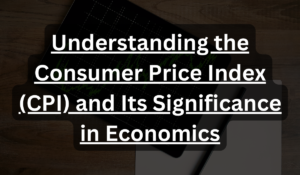Introduction:
Closing a forex trading account is an important process that traders may go through for various reasons. Whether you’re switching to a new broker, taking a break from trading, or exiting the forex market altogether, understanding the steps and considerations involved in closing your account is crucial. In this comprehensive guide, we will delve into the intricacies of closing a forex trading account, providing you with valuable insights and practical information to ensure a smooth and hassle-free experience.
1. Understanding the Importance of Closing a Forex Trading Account:
Opening a forex trading account is a significant step, but so is closing one. Closing your account ensures that you have control over your funds, prevents any unauthorized activity, and allows you to manage your financial obligations effectively. By closing your account properly, you can also maintain a clean record and streamline your tax reporting process.
2. Preparing for Account Closure:
Before initiating the account closure process, there are essential steps you should take to ensure a smooth transition.
2.1 Closing Open Trading Positions:
Closing any open trading positions is crucial before closing your account. This step allows you to determine the final outcome of your trades and ensures that you have control over your funds. It’s important to consider market conditions and evaluate whether it’s more advantageous to close positions at a loss or wait for potential gains.
2.2 Withdrawing Funds from Your Account:
To avoid complications, it’s important to withdraw all funds from your account before initiating the closure process. Some brokers may have specific requirements or restrictions on withdrawals, especially if there are open positions. By withdrawing your funds, you safeguard your capital and ensure that you have access to it outside of the trading account.
2.3 Downloading the Account Statement:
Downloading your account statement is crucial for record-keeping and tax purposes. Ensure that you download the necessary statements, covering the relevant periods of your trading activity. This documentation will provide you with a clear overview of your trading history, which can be beneficial for future reference or tax assessments.
3. How to Close a Forex Broker Account:
The process of closing a forex broker account may vary depending on the broker’s policies and procedures. However, there are general steps you can follow.
3.1 Contacting Your Broker:
In most cases, you will need to contact your broker directly to initiate the account closure process. The preferred methods of contact may include live chat, email, or phone. It’s essential to communicate your intention clearly and follow any additional instructions provided by the broker.
3.2 Account Termination Forms:
Some brokers may provide an online account termination form, simplifying the closure process. These forms typically require you to provide necessary details, specify your reason for closing the account, and confirm your decision. Completing and submitting the form as instructed by the broker can expedite the closure process.
3.3 Examples of Account Closure Processes:
Let’s explore two examples of account closure processes to illustrate the steps involved with different brokers.
Example 1: eToro:
- Login to your eToro account and access the dashboard.
- Navigate to the “account” section and locate the “Close your eToro account” button.
- Select the appropriate category and specify your reason for closing the account.
- Confirm your choice, and eToro will provide information on the next steps.
Example 2: HYCM:
- Contact HYCM via written email to request account closure and inform your account manager.
- Follow any specific instructions provided by HYCM to initiate the closure process.
- Ensure that you have closed all open positions and withdrawn your funds before contacting customer service.
4. Opening Another Forex Trading Account:
If you wish to continue trading after closing your account, there are options available to open another trading account.
4.1 Possibilityof Opening a New Account with the Same Broker:
Some traders may choose to open a new account with the same broker for various reasons. Before proceeding, it’s important to consider any restrictions, account closure requirements, and potential benefits or disadvantages of maintaining a relationship with the same broker.
4.2 Openingan Account with a Different Broker:
Opening an account with a different broker is a common choice for traders who seek a change in trading conditions, access to different markets, or enhanced features and tools. When selecting a new broker, it’s crucial to conduct thorough research, compare offerings, and consider factors such as regulation, trading platforms, fees, and customer support.
4.3 Repeating the KYC Procedure:
When opening a new trading account, regardless of whether it’s with the same broker or a different one, you will likely need to go through the Know Your Customer (KYC) procedure again. This process ensures compliance with regulatory requirements and involves submitting identification documents and verifying your personal information.
5. Understanding Account Closure Fees:
Before closing your forex trading account, it’s important to review your broker’s fee structure and understand any potential account closure fees. Some brokers may charge a fee for closing an account, especially if there are open positions or specific conditions outlined in the account agreement. Being aware of these fees will help you make informed decisions and avoid unexpected charges.
6. Tax Implications of Closing a Trading Account:
Closing a trading account may have tax implications depending on your jurisdiction and individual circumstances. It’s crucial to understand the tax regulations and reporting requirements in your country. Here are some important considerations:
6.1 Downloading Account Statements for Tax Purposes:
Downloading your account statements is essential for accurate tax reporting. These statements provide a comprehensive record of your trading activities, including profits, losses, and other relevant financial information. Consult with a tax professional or refer to relevant tax guidelines to ensure compliance with reporting obligations.
6.2 Broker Requirements and Data Retention:
Brokers may have specific data retention policies and requirements concerning account closure and tax-related documentation. Familiarize yourself with your broker’s policies to ensure you have access to the necessary records when needed for tax purposes.
7. Broker’s Ability to Close Your Trading Account:
It’s important to note that brokers also have the authority to close your trading account under certain circumstances. This may occur if you violate their terms and conditions, engage in fraudulent activities, or fail to comply with regulatory requirements. Understanding your broker’s policies and adhering to their guidelines will help you maintain a positive trading relationship.
8. Key Takeaways:
- Closing a forex trading account involves several important steps, including closing open positions, withdrawing funds, and downloading account statements.
- Contacting your broker directly or using an account termination form are common methods to initiate the closure process.
- Consider the possibility of opening a new account with the same broker or exploring options with different brokers if you wish to continue trading.
- Be aware of account closure fees and understand the tax implications of closing your trading account.
- Familiarize yourself with your broker’s policies and requirements regarding account closure and data retention.
Conclusion:
Closing a forex trading account is a significant decision that requires careful consideration and proper execution. By following the steps outlined in this comprehensive guide, you can ensure a smooth account closure process while safeguarding your funds and complying with relevant regulations. Remember to consult with professionals, such as tax advisors or financial experts, to address any specific concerns or individual circumstances you may have.








